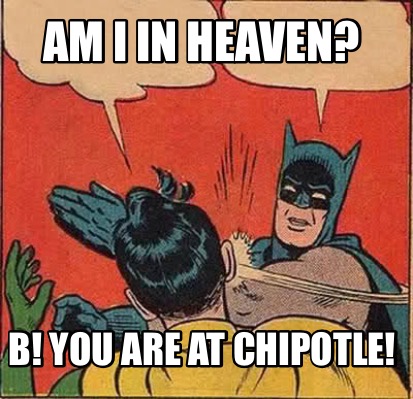Chipotle Mexican Grill made headlines this past week when they announced that they would be forced to raise prices by 4%. Really though, the move should not come as a surprise to anyone.
Like all other companies, Chipotle actively grapples with supply shortages, inflationary pressures, and a labor crunch. On top of these concurrent pressures, the chain is honoring its commitment to pay all workers a baseline pay of $15 an hour.
Their voluntary commitment to pay workers a higher rate aside, the latest pricing uptick to notably impact Chipotle’s assorted menu was an imminent reality; especially when you account not only for the pandemic, but the company’s track record of raising prices on countless occasions in the past.
“If they [all other companies impacted by Covid] jump, then why shouldn’t we?” is an easy policy for them to hide behind as justification. However, most of the firms who set this template for them to follow suit, were dealing with raw, unfinished products. Take the price of lumber, for instance.
Unfortunately, this does not occur in a vacuum – meaning the increases will only continue to ripple throughout the entire supply chain.
Companies like Chipotle can only absorb the costs of rising prices for so long before it begins to eat into profitability. On the surface, any observer might assume that the price of an asset like guacamole is a strong contributing factor (to the overall increased prices). They would be right in their assumption – somewhat.
Remember: guacamole remains as optional as it is for a customer to eat at a Chipotle restaurant in general. But it’s not just the Southern California and Mexico-grown avocados making up up Chipotle’s “guac” supply that require labor and energy. All other burrito, bowl, salad and taco-building ingredients on Chipotle’s Menu – like the ever-seasonal, across each hemisphere crop of Tomatoes, Midwestern Beef, chickens from Georgia or Minnesota, and so forth – do as well. Even more so for transportation, and then finally, preparation.
Needless to say, it is a Herculean feat to construct these supply lines – which of course remained resilient, even at the height of the pandemic last year.
Some of this inflation is arguably healthy. An example: the rise in lumber prices had more to do with the pent-up demand for new houses suppressed for over the past year than anything, including government stimulus. Still, some of it does relate to government policy. Unemployment benefits, high childcare costs, and dissatisfaction have kept workers out of the workforce, but still able to receive a paycheck. With fewer workers, sufficient supply is not allowed to expand – and therefore cannot meet the demand stipulated by government policy.
The result? Either of the two dreaded “I” words (inevitability, thy name is inflation).
The current rate of inflation stands about 5% – a statistic that approaches the highs of the greatest great recessions. Unless there is a change in policy or fortune, this number is likely to increase.
As far as the Chipotle front is concerned: their brass can only bank on its customer base maintaining a “blank check” spending relationship for so long before they ultimately learn via a quick Google search that CEO Brian Niccol allegedly moved headquarters from Denver and New York to California purely for the convenience of its close proximity to his personal residence.
When that happens, it is high time for Chipotle to panic; because you just know their customers are another botched online order here, or an over-$10 dollar burrito without guacamole there, away from taking their appetites to Moe’s instead.
Even Covid-19 has not vanquished basic economics. That is the message. This is the Messenger.





